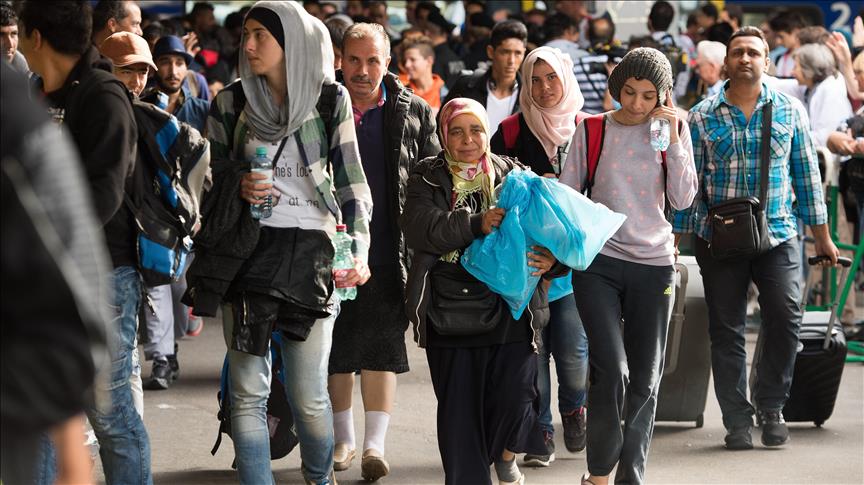
By Ayhan Simsek
BERLIN
The number of asylum-seekers coming to Germany fell to 186,644, the lowest level in three years, according to annual statistics released by the Interior Ministry on Tuesday.
EU’s largest economy welcomed 890,000 refugees in 2015, at the height of the refugee crisis, putting enormous pressure on Chancellor Angela Merkel’s coalition government.
Interior Minister Thomas de Maiziere, who advocated stricter immigration rules, has welcomed the sharp decrease, but also warned that the international refugee crisis was far from being over.
Due to various international crises, climate change, and economically driven migration, irregular population flows would continue to be a major challenge for decades, he told a news conference in Berlin.
“It is important to find a common European response, through addressing root causes of migration, combatting human smugglers, and standing by our humanitarian responsibility,” he stressed.
Among the 186,644 asylum seekers arrived in Germany last year, 47,434 of them were Syrians, 21,043 of them Iraqis and 12,346 were Afghans.
Family reunificiation
Interior Minister de Maiziere spoke skeptically of calls by NGO’s to grant family reunification for tens of thousands of Syrian and Iraqi refugees who arrived in Germany since 2015.
“On the one hand, family reunification has a positive impact on integration,” he acknowledged, but also cautioned that such a move might also make it more attractive for Syrians or Iraqis to embark on a dangerous journey, with the hope of bringing their family members to Germany later.
The conservative politician also claimed that family members of numerous asylum seekers arriving in Germany were not staying in the war zones of Syria, but in neighboring countries like Turkey.
“If it is very important for the family members to stay together, then they could do it in Turkey as well,” he said.
Some 390,000 Syrian refugees in Germany had to leave their family members in Syria, or in the neighboring countries, according to local media reports.
The far-right opposition Alternative for Germany (AfD) had described family reunification as an "incalculable risk” for the country, and called for severely restricting it.
Chancellor Merkel’s conservative CDU/CSU bloc and Social Democratic Party (SPD) agreed in their preliminary coalition deal last week to set a limit of 1,000 people per month, as part of family reunification for asylum seekers.
The conservatives and Social Democrats also agreed to restrict immigration, and stated that the number of refugees should not exceed 200,000 a year.
Merkel’s decision in 2015 to open doors for refugees fleeing conflicts and persecution was widely criticized by conservative media outlets, and was exploited by the far-right and populist parties.
Her Christian Democrats have suffered heavy losses in the country's federal elections in late September, while the far-right AfD scored record gains and entered the parliament for the first time.
In its campaign, the AfD attacked Merkel’s open-door policy for refugees, arguing that the country faces the threat of “Islamization” especially after more than one million refugees, mostly from Syria and Iraq, arrived since 2015.
Anadolu Agency website contains only a portion of the news stories offered to subscribers in the AA News Broadcasting System (HAS), and in summarized form. Please contact us for subscription options.







